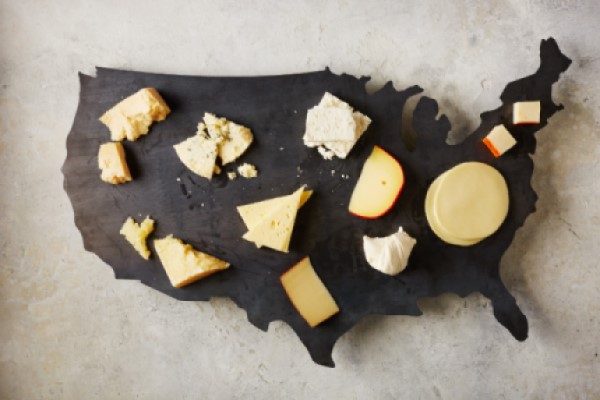EU’s trade policies on geographic indications causing $1.6 billion U.S./EU dairy trade deficit.
May 14, 2019

The Trump Administration should correct the inequity in cheese sales opportunities between the U.S. and the European Union, especially given the EU’s anti-trade practice of abusing geographical indication (GI) policies to monopolize generic cheese names as a means to shut out competition. That is the message sent in a letter to President Donald Trump by the chairman of the Consortium for Common Food Names (CCFN) Errico Auricchio, who is also the president and founder of Belgioioso Cheese based in Green Bay, Wis.
“The United States is an extremely profitable dairy market for the EU; we must leverage that power in correcting this deeply frustrating inequity,” Auricchio wrote. “I urge you to utilize all available tools to remedy this situation. Let us at least consider imposing the same restriction on them that they do on us: require that they not sell cheeses by these names into our market as long as we are locked out of theirs.”
The U.S. is Europe’s number-one export market for cheese, totaling approximately $1 billion in annual sales, but the EU restricts competition from the U.S. in many cheese categories, contributing to a massive, $1.6 billion U.S./EU dairy trade deficit, the letter states.
One of the main ways the EU blocks U.S. competition is by preventing nations outside the EU from marketing cheeses within Europe using common names like “parmesan,” which the EU says are protected by GIs. The U.S. has long maintained that protection of a GI like “Parmigiano Reggiano” should not be extended to encompass generic terms like “parmesan” that have been used by cheese-makers around the world for generations.
“Europeans can sell their asiago, parmesan, feta, etc., in Wisconsin, but cheese-makers like me are blocked from selling Wisconsin cheeses by the same names in Europe,” Auricchio wrote, adding that it is “truly aggravating” that “while we are shut out of their market, which includes some of the highest cheese-consuming nations in the world, the United States allows EU companies to sell their cheeses with these names into our lucrative U.S. market – competing with us for our own U.S. consumers.”
The letter adds that on May 27, the EU is scheduled to vote on and likely approve a GI for another generic cheese name – havarti – which will then block U.S. sales in the EU of this popular variety as well. “What’s more, restricting use of the generic name ‘havarti’ as a GI will completely disregard the international Codex standard the EU helped approve just over a decade ago, further disrespecting established agreements meant to ensure fair and orderly international trade,” Auricchio wrote.
The U.S. last month rebuked the EU for its abuses on GI policies in the annual Special 301 intellectual property report from the Office of the U.S. Trade Representative. CCFN said it continues to encourage the Administration to evaluate the full range of tools at its disposal to address the deeply asymmetrical nature of the U.S.-EU food trade relationship.
You May Also Like


.png?width=300&auto=webp&quality=80&disable=upscale)
